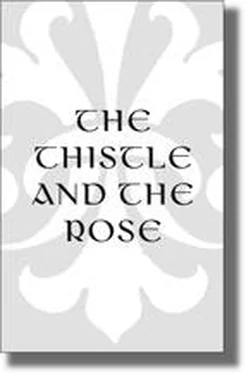Jean Plaidy - To Hold the Crown - The Story of King Henry VII and Elizabeth of York
Здесь есть возможность читать онлайн «Jean Plaidy - To Hold the Crown - The Story of King Henry VII and Elizabeth of York» весь текст электронной книги совершенно бесплатно (целиком полную версию без сокращений). В некоторых случаях можно слушать аудио, скачать через торрент в формате fb2 и присутствует краткое содержание. Жанр: Старинная литература, на русском языке. Описание произведения, (предисловие) а так же отзывы посетителей доступны на портале библиотеки ЛибКат.
- Название:To Hold the Crown: The Story of King Henry VII and Elizabeth of York
- Автор:
- Жанр:
- Год:неизвестен
- ISBN:нет данных
- Рейтинг книги:5 / 5. Голосов: 1
-
Избранное:Добавить в избранное
- Отзывы:
-
Ваша оценка:
- 100
- 1
- 2
- 3
- 4
- 5
To Hold the Crown: The Story of King Henry VII and Elizabeth of York: краткое содержание, описание и аннотация
Предлагаем к чтению аннотацию, описание, краткое содержание или предисловие (зависит от того, что написал сам автор книги «To Hold the Crown: The Story of King Henry VII and Elizabeth of York»). Если вы не нашли необходимую информацию о книге — напишите в комментариях, мы постараемся отыскать её.
To Hold the Crown: The Story of King Henry VII and Elizabeth of York — читать онлайн бесплатно полную книгу (весь текст) целиком
Ниже представлен текст книги, разбитый по страницам. Система сохранения места последней прочитанной страницы, позволяет с удобством читать онлайн бесплатно книгу «To Hold the Crown: The Story of King Henry VII and Elizabeth of York», без необходимости каждый раз заново искать на чём Вы остановились. Поставьте закладку, и сможете в любой момент перейти на страницу, на которой закончили чтение.
Интервал:
Закладка:
Therefore when he heard what proposition the King had to lay before him, he was astonished and completely taken off his guard.
“My son,” said the King, “you are aware of the change in Spanish affairs.”
“Yes, my lord,” answered the Prince.
“Ferdinand does not hold the same power since Queen Isabella died. When your brother married Katharine it was indeed the best of matches. Times change.”
The Prince listened intently. He knew that his father had behaved in a very parsimonious manner toward Katharine; he knew that she was always short of money. That was part of another of his fantasies. He had imagined himself showering riches on her at which she cried: “You are the most wonderful of beings. I am the luckiest Princess in the world and quite unworthy of your greatness.” He was rather glad therefore that she was in this position. It made his gesture all the more wonderful.
“It is fortunate,” went on the King, “that it was not in fact a true ceremony that was held in the Bishop’s house.”
“But . . . it was like a marriage ceremony. We signed our names.. . .”
“Henry, you must be able to adjust your thoughts. That is what being a good king means. If a marriage such as this one could bring no good to our country . . . and might bring harm . . . then the best thing possible is to repudiate it.”
“But how can we repudiate that which has in fact taken place, when there is evidence to prove it?”
“You have to disregard such sentiments if you are to keep the country prosperous and the crown on your head. This Spanish marriage is no longer necessary nor desirable to us.”
“But if it has already taken place.”
“It has not taken place. You are not married to the Lady Katharine and we are going to have another ceremony in which you repudiate that previous one.”
“My lord, it seems to me that in all honor . . .”
“What it seems to you, my son, is not important. She will understand for I believe her to be a sensible girl. Moreover she will know nothing of it . . . yet.”
“To repudiate a promise, my lord, and particularly one given so solemnly seems to me not to be in keeping with knightly honor.”
“Henry, you are obtuse. No more of this, you will obey my orders.”
“My lord . . .”
“Silence. Don’t show your childishness.”
Henry disliked his father at that moment, for he knew that he would have to obey. He would have to do as they wanted. It was a reminder of his youth.
“We will settle this matter without delay,” said the King.
“You mean there will not be a ceremony like that other . . .”
“Of course there will not be. This is a secret matter. The Bishop of Winchester awaits us below.”
“What do you want me to do?” asked Henry sullenly.
“You will not have to learn your words. They will be handed to you. You will read them and then they will be signed in the presence of the Bishop.”
“I like it not . . .”
“It is not for you to like or dislike. You must make it clear now that you do not consider the contract with Katharine of Aragon valid and you will make a statement to this effect.”
Henry, his mouth tight and sullen, his little blue eyes veiled, followed his father down from the apartments to a room below the kitchens. There was no window in this room and Henry realized at once that the King was determined they should not be seen.
There were present Richard Bishop of Winchester, Giles Daubeney, Charles Somerset, Earl of Worcester, and the King’s secretary.
They were all men, the Prince noticed, who had served his father well and before he came to the throne. Therefore he would be sure of their loyalty.
“Are we ready?” said the King.
It was agreed that they were.
Henry was told to stand before the company and a paper was thrust into his hand.
“Read,” commanded the King.
Henry started: “before you reverend lord and father in Christ, Richard Lord Bishop of Winchester, I Henry, Prince of Wales . . . declare that while of tender years and being to all knowledge below the age of manhood contracted a de facto marriage with her most Serene Highness Katharine daughter of the King of Spain and although that contract, because of my minority, is in itself already invalid, imperfect and of no force or effect nevertheless . . . I being on the verge of manhood declare that I do not intend in any way to approve validate or ratify that pretended contract . . . Now in this present document induced by no force, trickery or prayer but willingly and freely and in no way compelled, I denounce the contract and dissent therefrom. . . .”
He went on reading and his heart was saying: but I was forced. I was told I must do this. It is not my fault that I am breaking vows . . .
He had come to the end. The paper lay on a table and under the King’s scrutiny they all signed after Henry had done so.
They came out into the sunshine. Young Henry was resentful. He did not feel that he had acted as a chivalrous knight.

Henry had lost a certain pleasure in himself. The perfect knight had broken his vows; he had acted in a way which the laws of chivalry would have condemned as debasing; and he had acted so because he had been afraid to do otherwise. He could not forget Katharine in her well-worn gowns looking to him, he fancied, with an appeal in her eyes. She had looked to him as her savior and he had repudiated her.
It was not the role in which he saw himself. Usually he could lead his mind away from thoughts of disloyalty to himself. But there was the evidence in very fact; he had signed his name to that paper indicating that he did not consider himself bound to Katharine.
It was policy. His father had insisted and he had to obey his father who was more than an ordinary father; he was the King. A true knight obeyed his king without question. No, not when the case was a dishonorable one. Then a good and true knight rebelled. He served God first, the King second. Whichever way Henry looked at it he came up against his conscience.
It was the first time in his life that he realized what a strong force that was with him. He wanted to be above all other men and recognized to be so. He had little patience with the saints. He wanted to be a man. He must be the superior every time—in stature, in looks, in skill both mental and physical. He must excel at the joust; he was always to be the victor; he must win every battle against his adversaries. He must possess the best qualities of all his most illustrious ancestors. He must tower above them all in every way.
He wanted people to admire him. To look up to him. To say: There is a king victorious always, never failing in war . . . in peace . . . in honor.
There was the rub. He had gone through what was tantamount to a marriage ceremony with Katharine; and now he had denied it; and he knew why. It was because her mother was dead and the Kingdom of Castile had not passed to Katharine’s father Ferdinand (which would have meant Katharine remained an important factor in policy making), but had gone to Isabella’s sister who had an ambitious husband. Therefore Katharine was no longer to be considered so the King had forced his son most cynically to repudiate her.
And I did it, thought Henry.
Katharine was never far from his thoughts. He was ashamed of his action and as it was against his policy ever to be in the wrong he began to look for excuses for his conduct. It was no use telling himself that his father had forced him to do it, because it destroyed his image of himself if he allowed himself to be forced. That was why the matter was so disturbing. There had to be a reason why he had done what he had and it had to be a good one. His conscience demanded that.
Читать дальшеИнтервал:
Закладка:
Похожие книги на «To Hold the Crown: The Story of King Henry VII and Elizabeth of York»
Представляем Вашему вниманию похожие книги на «To Hold the Crown: The Story of King Henry VII and Elizabeth of York» списком для выбора. Мы отобрали схожую по названию и смыслу литературу в надежде предоставить читателям больше вариантов отыскать новые, интересные, ещё непрочитанные произведения.
Обсуждение, отзывы о книге «To Hold the Crown: The Story of King Henry VII and Elizabeth of York» и просто собственные мнения читателей. Оставьте ваши комментарии, напишите, что Вы думаете о произведении, его смысле или главных героях. Укажите что конкретно понравилось, а что нет, и почему Вы так считаете.












